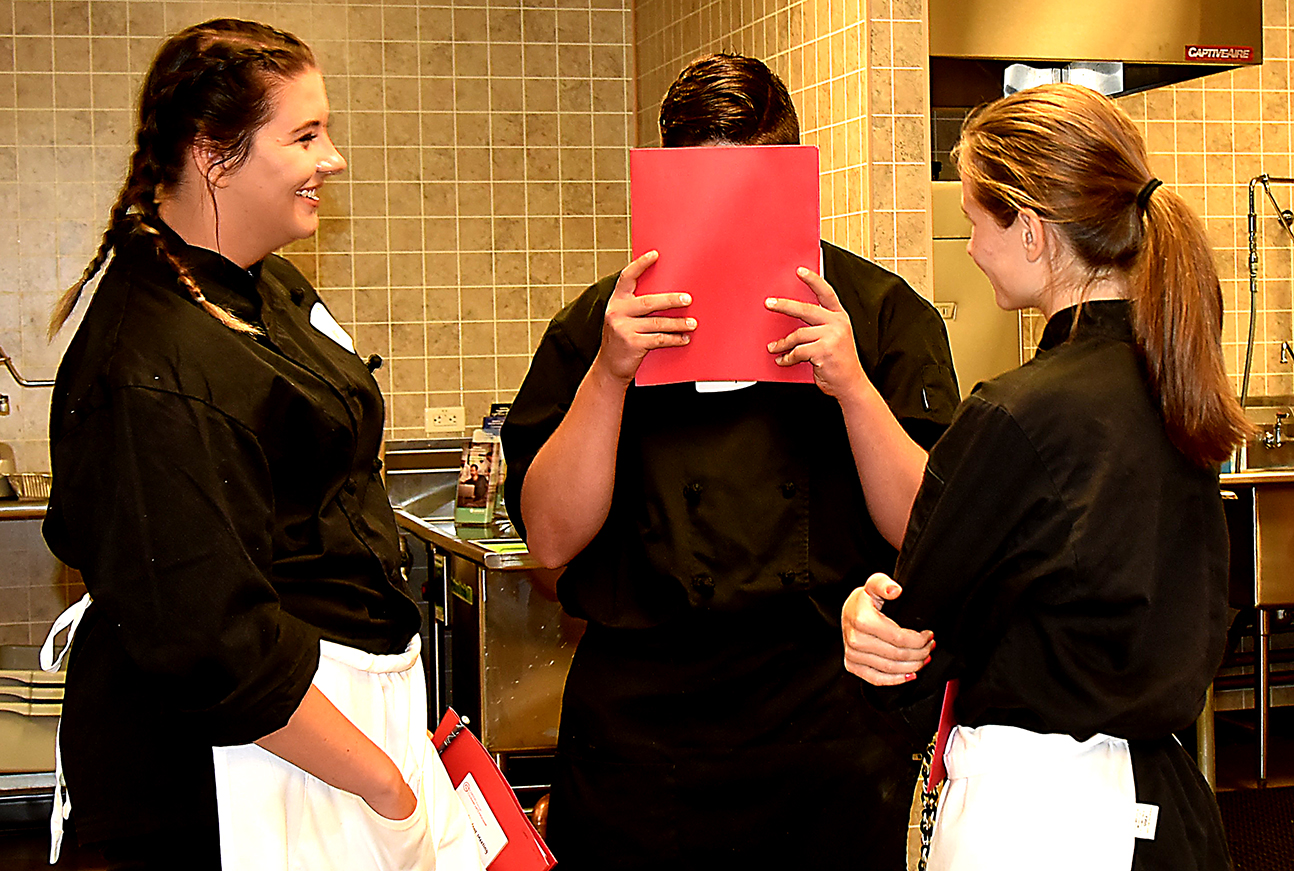It's not easy being CCAP.
In fact, it's some trouble. Just ask any junior or senior who's
hoping to compete for scholarship aid and real-world kitchen training.
It's culinary teachers, though, who
face sometimes daunting challenges in helping students make it through.
"We couldn't have CCAP
throughout Arizona without the culinary teachers who willingly sign up for all
of the 'extra work' we present them," says CCAP Arizona Director Jill
Smith.
Teachers are first gate keepers,
because students must be affiliated with a school that has agreed to the CCAP
contract of participation.
This requires teachers to invest
time, energy and some dollars in working with CCAP Arizona and in guiding students
through significant work in hard and soft culinary/hospitality skill sets.
It also means they're spending
additional dollars from already stretched-thin budgets for practice product and
other culinary essentials, as well as travel to and from CCAP practices and
events.
This is a big deal. Arizona
teachers are consistently asked for more time, more energy, more follow-through
on nearly every aspect of school life.
Nonetheless, CCAP teachers say, the
trouble, strife and expense are well worth the investment.
As culinary teacher Karla Desper of
WAVE JTED says, "CCAP presents benefits to our classes even if we only have
one student participating in competition. They're getting industry-level
experience.
"CCAP really encourages
real-world experience - and they help the students to acquire that
experience."
Rex Sherry, culinary teacher in
Chinle, is enthusiastic about CCAP's potential for his students. "CCAP
starts with competitions, but there are scholarships, networking and real world
experiences that are all oriented toward high school students.
"CCAP can be difficult at
first, but I work it into my own program. And using Rouxbe helps to extend my
own teaching, using the videos as a classroom extension. And my students gain a
real understanding of the industry.
"Working with CCAP can be
tough in the beginning, But eventually, it saves time in the classroom and you
feel and are smarter working with it.
It extends you."
Culinary teachers like Shawn
Morris, Glendale, see CCAP as a critical opportunity for students. "I see my job as giving every
opportunity possible for my students.
CCAP gives them an
introduction to the industry, puts them into contact with the best chefs in
town and helps set them up for success."
In keeping with that philosophy, he
sets up practices five days a week, makes certain students participate in CCAP
activities and pushes them: "Everyone needs someone who pushes them to be
better, the best version of themselves. You make a partnership with your
students."
(It works, he says. Under his
direction so far, 19 Glendale students have received CCAP scholarships, valued
at more than $600,000.)
CCAP also presents teachers with
opportunities, say Glenna Spurlock from Payson, Marilyn Ornellas from South
Mountain and Esther Flannigan from Mountain Institute JTED.
"CCAP somehow always helps
how, when and where you need them," Glenna says.
"Students who don't believe
they can succeed….with CCAP, they can do something big," Esther adds.
After a dozen years with CCAP,
Liberty High culinary teacher Jeff Stanhill is an unabashed booster.
"It's a real opportunity for
students," he says. "It takes time and support, but we've had several
winners and one big winner.
"Most importantly, while it
takes time and support from teachers and the school, there's just not a
downside to this. There's nothing I don't like about CCAP."




















































